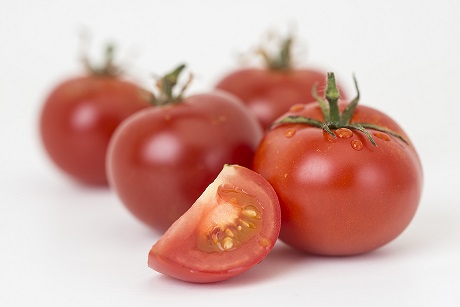UK scientists at the John Innes Centre in Norwich have found a new way of producing enormous quantities of natural compounds efficiently by growing them in tomatoes. These compounds are believed to help in combating life-threatening ailments as well as in extending human lifespan.

The phenylpropanoid compounds like Resveratrol, which is found in wine, was found to extend lifespan in animal studies. Genistein is another compound, which is found in soybean, known to play a significant role in reducing the risk of steroid-hormone related cancers such as breast cancer.
Scientists, led by Dr Yang Zhang and Dr Eugenio Butelli, have found that one tomato can produce the same quantity of Resveratrol as found in 50 bottles of red wine and Genistein as found in 2.5kg of tofu.
They have been studying the effect of a protein called AtMYB12, which is found in Arabidopsis thaliana, a common plant.
They used Arabidopsis thaliana as a model plant for investigation. AtMYB12 activates a wide range of genes that help in producing natural compounds that are useful to the plant.
The researchers introduced this protein into a tomato plant and found that it helped boost the capacity of the plant to produce natural compounds and influence the amount of energy and carbon the plant dedicates to producing these natural compounds.
In addition to introducing AtMYB12 in tomato plants, they introduced genes that encode enzymes specific for making Resveratrol in grape and Genistein in legumes. They found that tomatoes could produce as much as 80mg of novel compound per gram of dry weight, thereby making it feasible for firms to produce in large scale.
Given that tomatoes are a high yielding crop, producing up to 500 tonnes per hectare, and require few inputs, production of useful compounds such as Resveratrol or Genistein in tomatoes would be feasible and economical rather than developing artificial compounds in labs or extracting them in small quantities from usual plant sources such as grapes, soybeans, etc.
Dr Zhang said: "Medicinal plants with high value are often difficult to grow and manage, and need very long cultivation times to produce the desired compounds. Our research provides a fantastic platform to quickly produce these valuable medicinal compounds in tomatoes.
"Target compounds could be purified directly from tomato juice. We believe our design idea could also be applied to other compounds such as terpenoids and alkaloids, which are the major groups of medicinal compounds from plants."
Image: GM tomatoes to help combat few life-threatening ailments. Photo: Courtesy of John Innes Centre.




